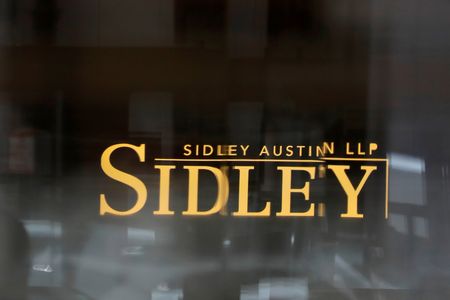By Svea Herbst-Bayliss
NEW YORK (Reuters) – Law firm Sidley on Friday stepped into the debate over how aggressively corporations should defend themselves against activist investors by warning clients against making it unduly difficult for shareholders to nominate directors.
The firm, which defended Hasbro Inc, US Foods Holding Corp and others against corporate agitators, published the note after a veteran investor asked Delaware Chancery Court to throw out amendments to one of its target company’s bylaws.
Sidley argues corporations must understand how to protect corporate interests but also notes the circumstances surrounding fresh bylaws are critical. They “may give rise to risk from a litigation standpoint as well as from a public and investor relations perspective.”
The note references new requirements by Masimo Corp which would force Politan Capital or any other activist planning to nominate directors at the medical device maker to disclose the identities of the fund’s limited partners and future plans to nominate candidates elsewhere.
Politan, which owns an 8.9% stake in Masimo and is run by Quentin Koffey, has hinted at plans to seek board seats next year. It sued Masimo, which has a market capitalization of $7.4 billion, in October.
The lawsuit sparked debate among corporate governance experts, activist investors and corporate executives over how to proceed as the industry adjusts to new corporate ballot rules that could make it easier for activists to win board seats.
Several hedge funds, who say their clients’ identity and future plans are trade secrets, fear their business may be harmed if more companies adopt changes similar to Masimo’s.
Sidley warned clients to make changes long before an activist shows up and to stop short of making them so tough that proxy fights are scuttled. Otherwise courts may get involved.
“The clearest set of cases providing support for enjoining an advance notice bylaw involves a scenario in which a board, aware of an imminent proxy contest, adopts an advance notice bylaw so as to make compliance impossible or extremely difficult,” the note said.
(Reporting by Svea Herbst-Bayliss in New York; Editing by Matthew Lewis)

